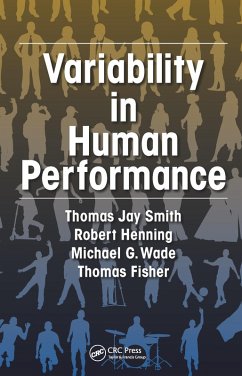This book introduces a comprehensive framework for understanding human performance variability in terms of how human control of behavior is closely tied to design factors in the performance environment. Empirical evidence, as well as practical examples and application areas, introduced in support of this framework. The book provides suggestions on how individuals, groups, and organizations can significantly reduce variability in human performance that often leads to systems failures.
Dieser Download kann aus rechtlichen Gründen nur mit Rechnungsadresse in A, B, BG, CY, CZ, D, DK, EW, E, FIN, F, GR, HR, H, IRL, I, LT, L, LR, M, NL, PL, P, R, S, SLO, SK ausgeliefert werden.









